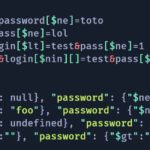No products in the cart.

Cybersecurity in Education: What Parents, Teachers, and Students Should Know in 2023 In as much as we have to thank technology for the help it has impacted in education, there are still some disadvantages the digital world has to offer. As technology grows in the world, cyberbullying has also become....
Author
Latest Articles
 BlogDecember 28, 2022Cybersecurity in Education: What Parents, Teachers, and Students Should Know in 2023
BlogDecember 28, 2022Cybersecurity in Education: What Parents, Teachers, and Students Should Know in 2023 BlogDecember 15, 2022Remembering Leonard Jacobs
BlogDecember 15, 2022Remembering Leonard Jacobs BlogSeptember 30, 2022VPN Security: A Pentester's Guide to VPN Vulnerabilities
BlogSeptember 30, 2022VPN Security: A Pentester's Guide to VPN Vulnerabilities BlogAugust 9, 2022AppSec Tales II | Sign-in
BlogAugust 9, 2022AppSec Tales II | Sign-in

I really admire that you alerted me to this article because I thought it was wonderful. That’s exactly what I was hoping to discover, and I sincerely hope you’ll continue to share such great things in the years to come.
I appreciate your submission. I have extensively studied numerous related topics. Your essay stood out to me in a unique way compared to others. I hope you will continue to write perceptive pieces like this one and share them with everyone to read.